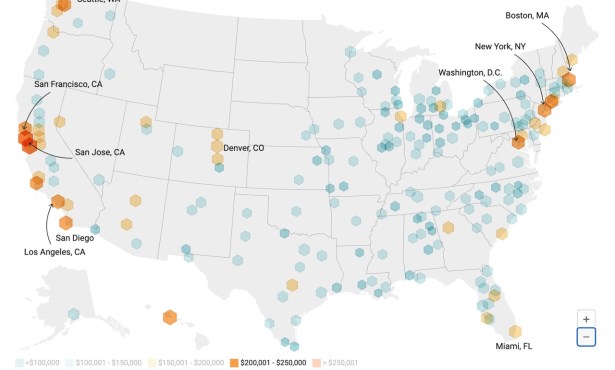Homeless Rights Advocate Sues City
Argument: Oversized-Vehicle Ban Is Discriminatory
For nearly two years now, longtime homeless rights advocate Peter Marin has been threatening to sue the City of Santa Barbara over an ordinance prohibiting oversized vehicles from parking on city streets. Late last week, Marin and his Committee for Social Justice organization made good on that threat, filing a federal civil rights complaint on behalf of 14 individuals who live in their RVs. Marin has argued the city’s ordinance that bans oversized vehicles — defined as any vehicle bigger than 80 inches wide, 82 inches high, or 25 feet long — was passed in 2016 to provide city police the legal pretext to chase RV dwellers out of town while maintaining the appearance that they’re acting to enhance traffic safety for motorists.
When the City Council voted to adopt the ordinance, it did so on the grounds that oversized vehicles blocked sight lines of motorists, cyclists, and pedestrians, thus making the roads more hazardous. Marin and his attorney, Russell Brown, argue that the law is inherently discriminatory because it offers a host of exemptions to many classes of oversized vehicles — delivery vans, contractor vans, tour buses — that are not available to people who happen to live in their RVs.
Among the plaintiffs are about five who suffer from chronic disabilities. Some fit stereotypes of being rough around the edges, and so too are their vehicles. During last Friday’s press conference in front of City Hall, one of the plaintiffs drove his beat-up RV around De la Guerra Plaza, honking his horn. “I get that I don’t want that guy parked in front of my house,” noted Brown, “but restrictions that say you can’t park anywhere are unreasonable.” The Constitution gives all citizens the right to travel wherever they choose, Brown argued, but the city ordinance effectively bans a class of people from the streets of Santa Barbara.
At night, many of the plaintiffs park their RVs in city lots managed by the Safe Parking Program. Spaces, however, are limited, and the rules of conduct are restrictive. Guests, for example, are not allowed. This rule, Brown argued, violated the constitutional rule right to free assembly.
Brown grew up in Goleta and attended local public schools. He argued that the law was crafted in the first place to be a neutral-seeming measure that could withstand legal challenge by activists like Marin, who’ve argued laws explicitly targeting the poor are unconstitutional.
Marin and City Hall have, in fact, been playing legal cat-and-mouse games over previous efforts to restrict RV parking in certain neighborhoods for nearly 20 years. While Marin hasn’t won such skirmishes, he’s proved a stubborn adversary and an effective nuisance. The new ordinance emerged out of those legal battles. But when it was drafted, owners of larger Sprinter-style vans — many in the contracting business — came out of the woodwork. The Chamber of Commerce likewise assailed the ordinance, claiming it was anti-business. Exemptions were included to assuage such concerns. Permits could be applied for, but only in parking spots that didn’t block the sanctity of the sight lines.
Marin and Brown objected that the ordinance has become yet another weapon in a war waged against poor people. First, they complained, RV dwellers are given tickets they can’t afford to pay — $48 a pop. Once five tickets accumulate unpaid, police can have the offending vehicles towed. The cost of towing is $810 plus a $100-per-day impound fee and a $160 release fee. By comparison, Brown stated, the towing charge on other impound tickets is only $550— more evidence, he argued, of the ordinance’s discriminatory purpose. About five RVs to date have been towed.
City Attorney Ariel Calonne said the ordinance was crafted with the expectation Marin would file a lawsuit. He deferred comment on the challenge until after he met with the council in closed session to discuss the litigation.
Editor’s Note: This story was corrected on September 27, 2018, as there are 14 plaintiffs, not 24, who have filed suit.


